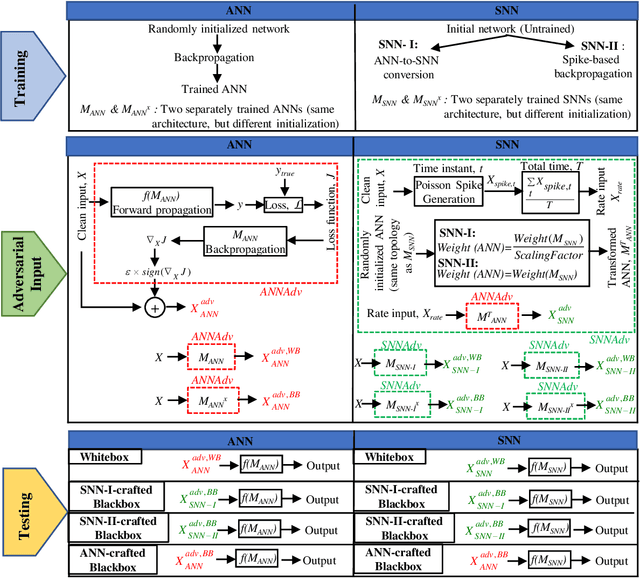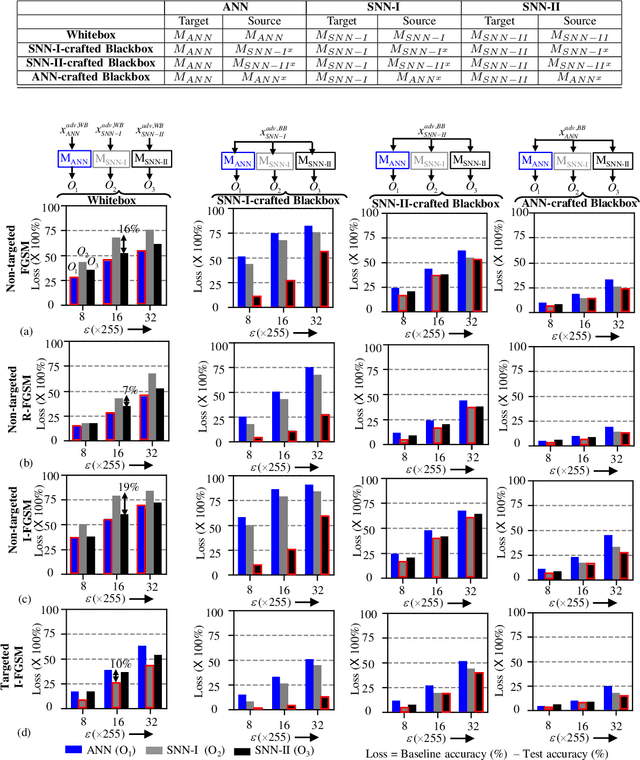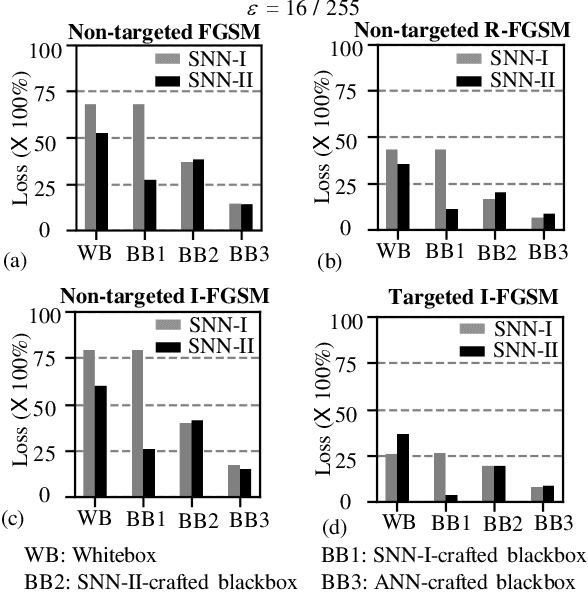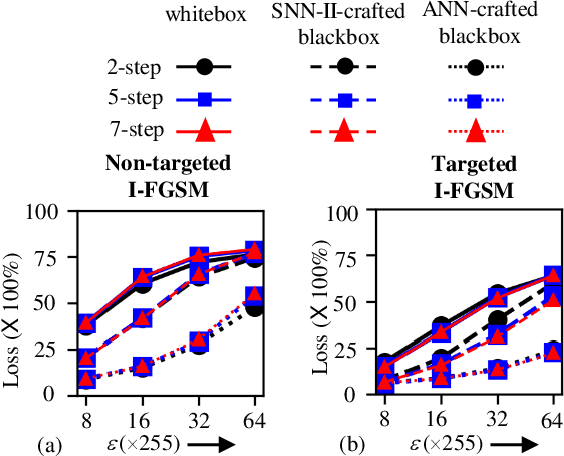A Comprehensive Analysis on Adversarial Robustness of Spiking Neural Networks
Paper and Code
May 07, 2019



In this era of machine learning models, their functionality is being threatened by adversarial attacks. In the face of this struggle for making artificial neural networks robust, finding a model, resilient to these attacks, is very important. In this work, we present, for the first time, a comprehensive analysis of the behavior of more bio-plausible networks, namely Spiking Neural Network (SNN) under state-of-the-art adversarial tests. We perform a comparative study of the accuracy degradation between conventional VGG-9 Artificial Neural Network (ANN) and equivalent spiking network with CIFAR-10 dataset in both whitebox and blackbox setting for different types of single-step and multi-step FGSM (Fast Gradient Sign Method) attacks. We demonstrate that SNNs tend to show more resiliency compared to ANN under black-box attack scenario. Additionally, we find that SNN robustness is largely dependent on the corresponding training mechanism. We observe that SNNs trained by spike-based backpropagation are more adversarially robust than the ones obtained by ANN-to-SNN conversion rules in several whitebox and blackbox scenarios. Finally, we also propose a simple, yet, effective framework for crafting adversarial attacks from SNNs. Our results suggest that attacks crafted from SNNs following our proposed method are much stronger than those crafted from ANNs.
 Add to Chrome
Add to Chrome Add to Firefox
Add to Firefox Add to Edge
Add to Edge